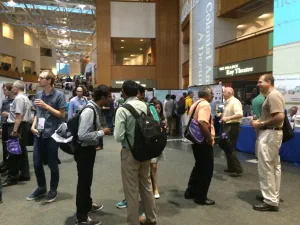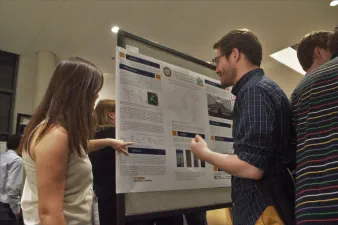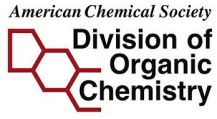M. Christina White
M. Christina White (University of Illinois at Urbana-Champaign) is studying and developing selective allylic and aliphatic C—H oxidation reactions for general use in organic synthesis. Her group has contributed novel palladium/sulfoxide and iron catalysts that enable the functionalization of C—H bonds with predictable selectivities, under preparative conditions and in complex molecule settings- without the requirement for directing groups. These reactions have provided insights into the physical organic properties of C—H bonds that govern their differential reactivity and have led to strategic advances in synthesis.
Sorry, only members of the Organic Division can access this page.
You can join the Division for only $20.
If you think this message is in error, please contact us
Dale Poulter
Dale Poulter (University of Utah) is Editor in Chief of The Journal of Organic Chemistry and a noted researcher. Interested in problems at the interface between organic chemistry and biochemistry, Poulter examines reactions catalyzed by enzymes in the isoprene biosynthetic pathway and structure-function relationships in peptides and proteins. In this research, he isolate genes for the enzymes under investigation and construct plasmids for overexpression of the enzymes, and carries out side-directed mutagenesis on critical amino acids to elucidate their role in catalysis.
David MacMillan
David MacMillan (Princeton) is studying new concepts in synthetic organic chemistry involving organocatalysis, organo-cascade catalysis, metal-mediated catalysis, and total synthesis of natural products and pharmaceuticals. He is also Director of the Merck Center for Catalysis at Princeton University.
Huw Davies
Huw M. L. Davies (Asa Griggs Candler Professor, Emory University) is the Director of the NSF Center In Selective C–H Functionalization (NSF-CCHF). His research program is highly collaborative and emphasizes the development of new enantioselective synthetic methods. His program covers design of chiral catalysts, development of new synthetic methodology, total synthesis of biologically active natural products, and development of chiral therapeutic agents. A major current theme in his group is catalytic asymmetric C–H functionalization by means of rhodium-carbenoid induced C–H insertion.
John D. Roberts
John D. Roberts (Caltech) is an icon in organic chemistry. His achievements, stretching over 60 years, include fundamental research in physical organic chemistry such as the elucidation of the structure of benzyne, to seminal studies in the use of proton, carbon and nitrogen NMR spectroscopy in organic chemistry. He many textbooks add to his stature of one of the elite in the field.
John Montgomery
John Montgomery (University of Michigan) is interested in the design and development of broadly useful synthetic transformations. His interests largely focus on catalysis by late transition metals, including projects in reaction discovery, mechanistic chemistry, and total synthesis. Recent interests have also including the development of new methods in carbohydrate chemistry and the use of biocatalytic transformations in organic synthesis. Following twelve years on the faculty at Wayne State University, he has been at the University of Michigan since 2005. He was the recipient of an ACS Arthur C. Cope Scholar Award in 2001.
K.C. Nicoloau
K. C. Nicolaou (Scripps and University of California San Diego) studies the chemistry, biology, and medicine of natural and designed molecules with an emphasis on the total synthesis of some of the most intriguing molecules occurring in nature. He is also deeply committed to the education and training of a new generation of men and women in the chemical sciences, in part demonstrated by his authorship of several highly regarded books for various audiences.
Ken Houk
Ken Houk (UCLA) has devoted his career to solving problems in organic and bio-organic chemistry using theoretical and computational methods. As a corollary to his work in theory, he is involved in experimental research to test theoretical predictions and to develop new reactions, reagents, and catalysts which have been designed from theoretical investigations. Of particular interest include the understanding and design of stereoselective organic reactions and catalysts, pericyclic reaction mechanisms, gating in proteins and synthetic hosts, the origins of biological catalysis, reactive intermediates in biology and the atmosphere, and molecular devices and structures and properties of organic materials.
M.G. Finn
M.G. Finn (The Scripps Research Institute and the Georgia Institute of Technology after March 2013) and his coworkers develop chemical and biological tools for the creation of functional molecules, and make such molecules for biomedical purposes. His group has provided click chemistry methods for synthesis and bioconjugation, and has pioneered the use of viruses and virus-like particles as polyvalent agents for cell targeting, immunology, and catalysis. They also have strong interests in materials chemistry, molecular evolution, and analytical techniques that support these missions. He is most proud of being recognized as the inaugural winner of the The Scripps Research Institute Outstanding Mentor Award in 2011. He is Editor in Chief of the ACS journal Combinatorial Science.




